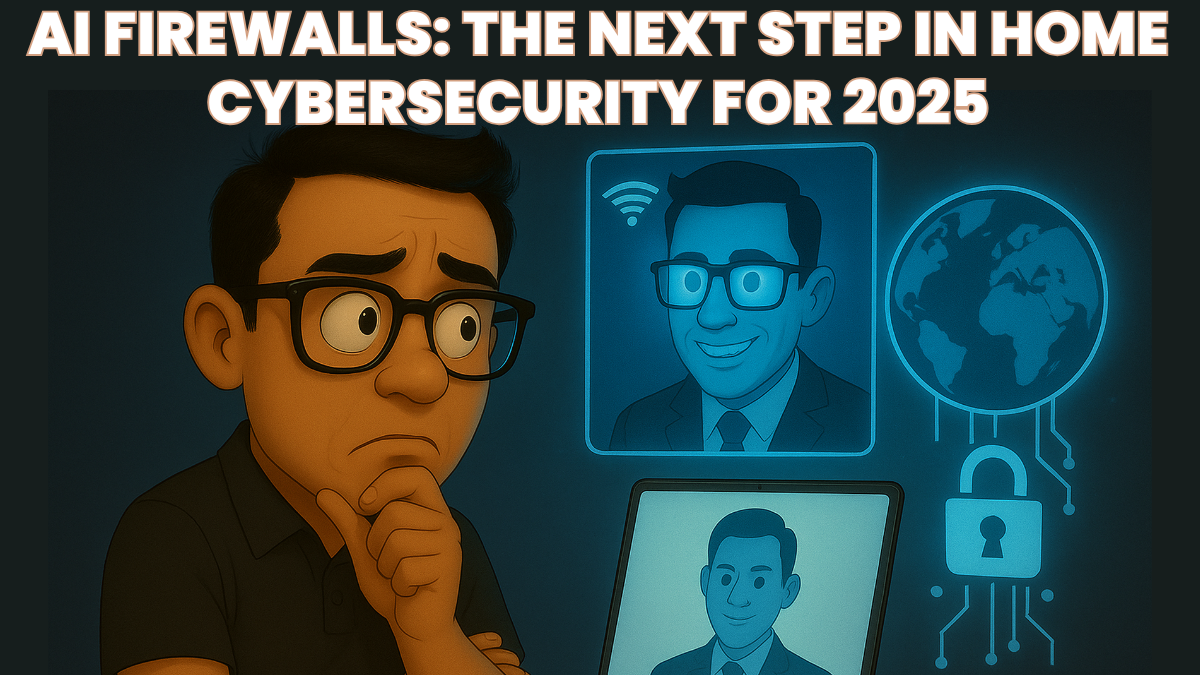With India experiencing a rapid surge in smart home adoption, the demand for robust security solutions has never been greater. From voice assistants and IoT devices to connected cameras and smart locks, households today are more vulnerable than ever to cyber threats. This is where AI firewalls home security 2025 step in. Designed to provide intelligent, adaptive protection, these advanced firewalls represent a major leap forward in smart home cybersecurity India.
In 2025, cybercrime is no longer limited to big corporations. Hackers are increasingly targeting personal networks, exploiting weak Wi-Fi security or unsecured devices. Traditional firewalls and antivirus software often fail to keep up with these fast-evolving threats. AI-powered firewalls, on the other hand, use machine learning and predictive analytics to detect and block attacks before they cause harm.

Why AI Firewalls Are Essential in 2025
The role of AI firewalls home security 2025 is more than just filtering traffic. They actively learn from user behavior, network patterns, and global threat intelligence. Here’s why they’re considered the future of household cybersecurity:
-
Proactive Protection: Instead of waiting for known virus signatures, AI firewalls detect unusual activity in real-time.
-
Smart Device Integration: Every IoT gadget, from smart bulbs to refrigerators, is protected under a unified system.
-
Personalized Security: The firewall adapts to your household’s internet habits, minimizing false alarms.
-
Automatic Updates: Threat databases are continuously updated, ensuring homes stay protected without manual intervention.
-
Cloud + Edge Intelligence: Combining local monitoring with cloud-based AI makes them faster and more reliable.
This proactive model reduces the chances of identity theft, data breaches, and even device hijacking in Indian households.
How AI Firewalls Work in Homes
Unlike traditional firewalls that rely on static rules, AI firewalls function dynamically. They analyze data packets, monitor unusual login attempts, and block suspicious activity instantly. For example:
-
If a smart TV suddenly tries connecting to an unknown server, the firewall flags and blocks it.
-
If multiple failed login attempts occur on your home security camera, AI intervenes before hackers succeed.
-
AI-powered parental controls also keep children safe by filtering unsafe content automatically.
By combining smart home cybersecurity India with machine learning, AI firewalls provide round-the-clock monitoring and rapid responses to cyber risks.
Adoption of AI Firewalls in India
The Indian smart home market has expanded rapidly in 2025, with affordable IoT devices becoming mainstream. This has increased the urgency for reliable protection. Tech companies and telecom operators are now offering AI firewalls bundled with smart home packages.
Additionally, several Indian startups are building cost-effective AI security solutions tailored for middle-class families. These affordable packages have made AI firewalls home security 2025 accessible not only to premium households but also to regular internet users concerned about their digital safety.
Benefits for Indian Families
The advantages of AI firewalls extend beyond just cybersecurity:
-
Peace of Mind: Families no longer have to worry about their data being stolen through smart devices.
-
Safe Remote Work: With many Indians working from home, AI firewalls secure sensitive company data.
-
Financial Security: Prevents phishing, malware, and ransomware attacks that target banking apps and online payments.
-
Enhanced Privacy: Keeps personal conversations, home cameras, and digital assistants safe from intrusions.
-
Future-Proof Security: AI ensures evolving threats are tackled without needing frequent hardware upgrades.
For urban and semi-urban households that rely on connected devices, these benefits are game-changing.
Challenges in Implementation
While promising, AI firewalls home security 2025 face some challenges:
-
Cost Factor: High-end AI firewalls are still relatively expensive for average households.
-
Technical Knowledge: Some users find setup and customization complicated.
-
False Positives: Occasionally, safe applications may be flagged as threats.
-
Dependence on Internet: Many AI systems rely on cloud updates, making them less effective during outages.
However, as adoption grows and costs reduce, these hurdles are expected to decline. Government cybersecurity initiatives and awareness campaigns are also playing a role in educating families about the need for strong home protection.
The Future of Smart Home Cybersecurity in India
Looking ahead, smart home cybersecurity India is set to evolve further. AI firewalls may soon integrate with biometric authentication, AI-powered CCTV monitoring, and blockchain-backed data security. The ultimate goal is to create a fully protected digital ecosystem where every device in a home communicates securely without loopholes.
By 2025 and beyond, Indian families will view AI firewalls not as optional upgrades but as essential household infrastructure, similar to electricity or running water.
Final Thoughts
The rise of AI firewalls home security 2025 is a direct response to the challenges of living in a hyper-connected world. For Indian households, adopting these advanced systems means safeguarding privacy, protecting finances, and ensuring peace of mind. As smart homes continue to spread, smart home cybersecurity India will depend heavily on AI-powered solutions that stay one step ahead of cybercriminals.
FAQs
What is an AI firewall?
An AI firewall is an advanced cybersecurity tool that uses artificial intelligence to detect, predict, and block threats in real-time.
Why do Indian households need AI firewalls in 2025?
Because smart homes are vulnerable to hacking, AI firewalls provide proactive protection against identity theft, data breaches, and unsafe device connections.
Are AI firewalls expensive in India?
While high-end models are costly, affordable versions are available from startups and telecom providers, making them accessible for middle-class families.
Do AI firewalls work with all smart devices?
Yes, they protect all IoT devices connected to a home network, including smart TVs, speakers, cameras, and appliances.
Click here to know more.
